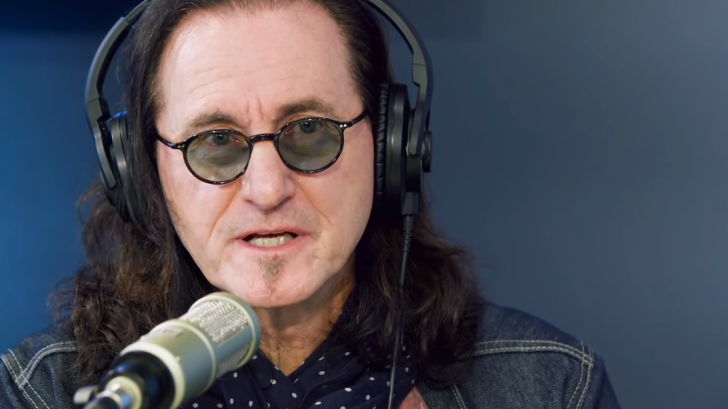Geddy Lee is widely recognized as a legendary figure in Canadian culture. He has been spotted watching Toronto Blue Jays games from his seat behind home plate and poking fun at himself alongside the South Park crew. Lee exemplifies the stereotype of a nice Jewish boy from Canada who unexpectedly rose to fame as a rock star. In fact, when Rush was a group of teenagers trying to make it big, Lee recalled facing resistance from his family.
“We were rehearsing in my basement and playing with these guys,” Lee told in the documentary Rush: Beyond the Lighted Stage. “They weren’t Jewish guys. We were really loud, and it didn’t sound anything like music to my family. They just thought I was nuts. They thought I was probably a drug-taking freak. So they were scared: they were freaked out. They didn’t know what to do or how to handle it.”
Lee’s family was initially resistant when he first started his music career, but he eventually made them proud with his success in Rush, one of Canada’s most popular bands. Rush managed to build a global following, especially in the US and UK, while still returning to their Canadian roots. Starting with Permanent Waves in 1980, Rush recorded at Le Studio in Quebec for their next three albums. Lee and Lifeson still live in Canada, and when asked about the most underrated band by Classic Rock, Lee chose a Canadian treasure.
“The Tragically Hip, from Canada, had huge, godlike stature at home but nowhere else,” Lee explained to the magazine. “They had this perfect blend of simple, twin-guitar rock n’ roll and very evocative, thought-provoking lyrics.”
The Tragically Hip were a beloved Canadian band that enjoyed significant success during the 1990s and beyond, but their journey came to a sudden stop when lead singer Gord Downie was diagnosed with terminal brain cancer in 2015. Despite this setback, the band soldiered on for as long as they could, and Downie ultimately passed away in 2017. Rush conveyed their sadness and condolences in a statement.
“It’s a sad, sad day for Canada and Canadian music,” the band wrote at the time. “Rest in peace, Gord… and thank you.”

